Ali Abdullah Saleh, Yemen's dominant force
- Published
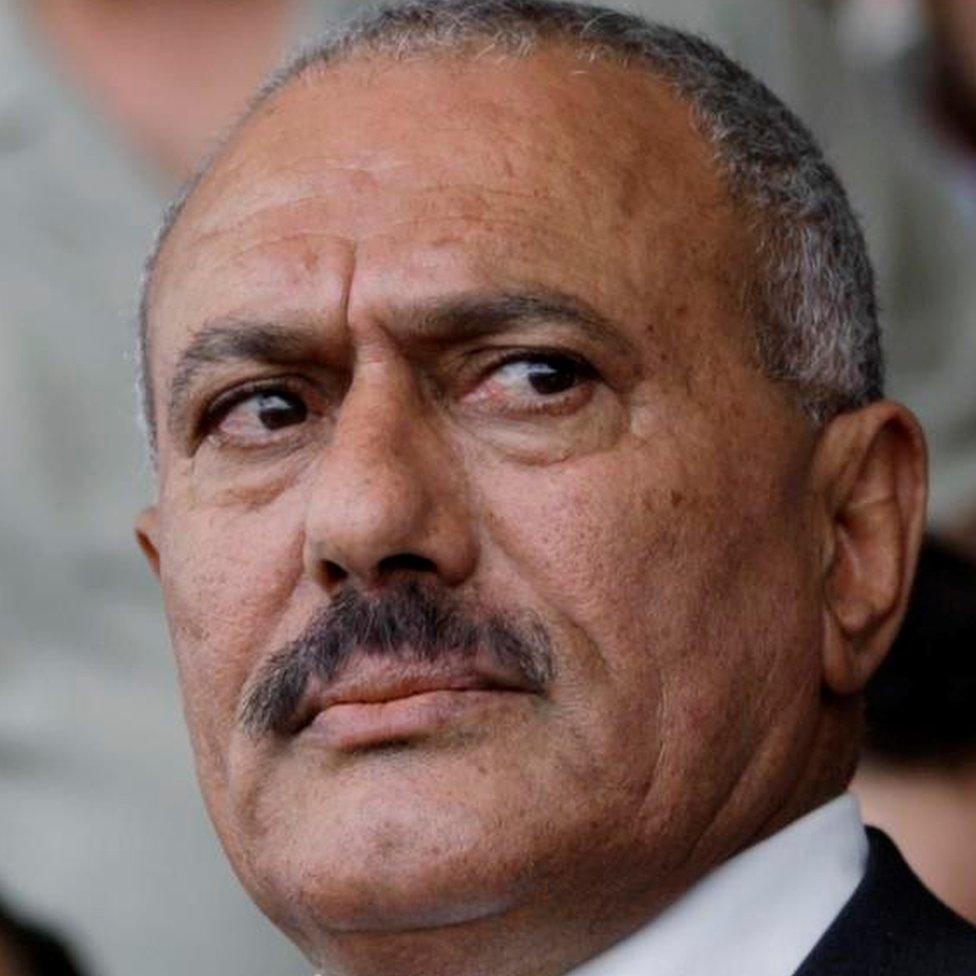
Ali Abdullah Saleh had ruled Yemen for more than three decades
Ali Abdullah Saleh dominated political life in Yemen for decades, both during and after his long-time role as president.
A wily political operator, Saleh was a former ally of Iraqi leader Saddam Hussein, but he switched his support to the US after the 9/11 attacks in return for millions of dollars in aid.
For many years he managed to hold his disparate and poverty-stricken country together despite tribal squabbles and many insurrections.
However Saleh's increasingly authoritative and corrupt regime was eventually ended after mass protests on the streets.
His death on 4 December - just days after he turned against his former allies, the Houthi rebel movement, ending an alliance that had lasted three years amid the country's longstanding civil war - is likely to damage the immediate prospect of peace for Yemen.
What happened to Saleh?
Saleh's supporters had for months been fighting alongside the Houthis in a war against Yemen's current president, Abdrabbuh Mansour Hadi.
But on 2 December, Saleh offered to "turn a new page" with the Saudi-led coalition backing Mr Hadi if it stopped attacking Yemen and ended its crippling blockade.
The Houthis then accused him of staging a "coup" and fighting ensued between his supporters and the Houthi rebels.
Days later Saleh was killed in an attack south of Yemen's capital, Sanaa. The incident was hailed as a "great and significant occasion" by Houthi leader Abdul Malik al-Houthi.
A conflicted political life
Ali Abdullah Saleh was born on 21 March 1942, a member of the Sanhan tribe.
He joined the army where he fought for the republican government in North Yemen's civil war, which saw the Saudi-backed remnants of the monarchy pitted against the Egyptian-sponsored republicans.
When the North Yemen President Ahmed ibn Hussein al-Ghashmi was assassinated in June 1978, Saleh became one of a four-man ruling council.
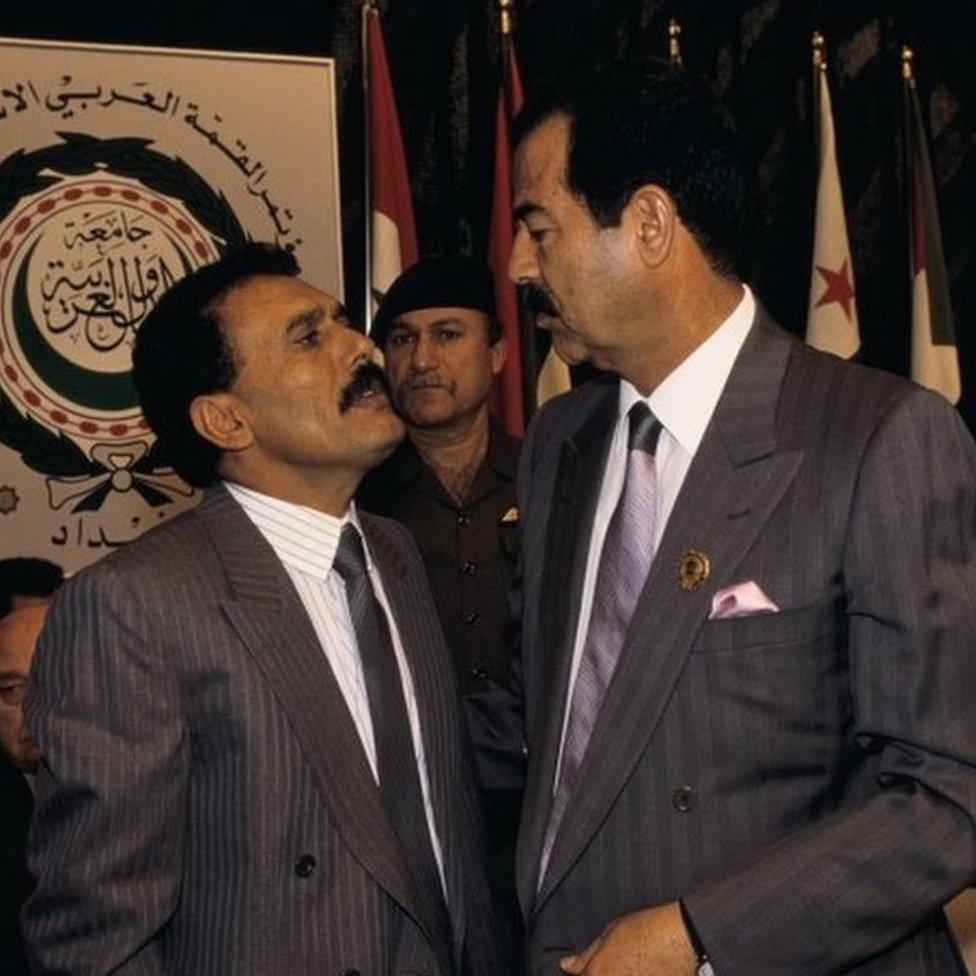
Saleh had been a close ally of Saddam Hussein
A month later, the North Yemen parliament elected him as president.
Saleh set out to buy the support of the warring tribes and, to the surprise of many observers, he was re-elected in 1982, and again six years later.
He also set about the painstaking work of unification with Marxist South Yemen, a process which was speeded up with the collapse of the Soviet Union which had been the south's main source of support.
In May 1990, Ali Abdullah Saleh was pronounced president of the new Republic of Yemen with Sanaa as its capital.
'War on terror'
The early years of the republic proved troublesome. Civil war broke out in mid-1994 and the south seceded in May of that year. However, the separation lasted only two months before its military was crushed by the north, placing Saleh once again at the helm of a unified Yemen.
In its first free elections, Saleh's General People's Congress (GPC) won most seats but had to rule in a coalition with the Yemeni Socialist Party and Islamist Islah party.
Violence continued to remain a factor in Yemeni politics. The gradual return home, during the 1990s, of militant Islamists who had fought against the Soviet occupation of Afghanistan, fuelled dissent within Yemen.
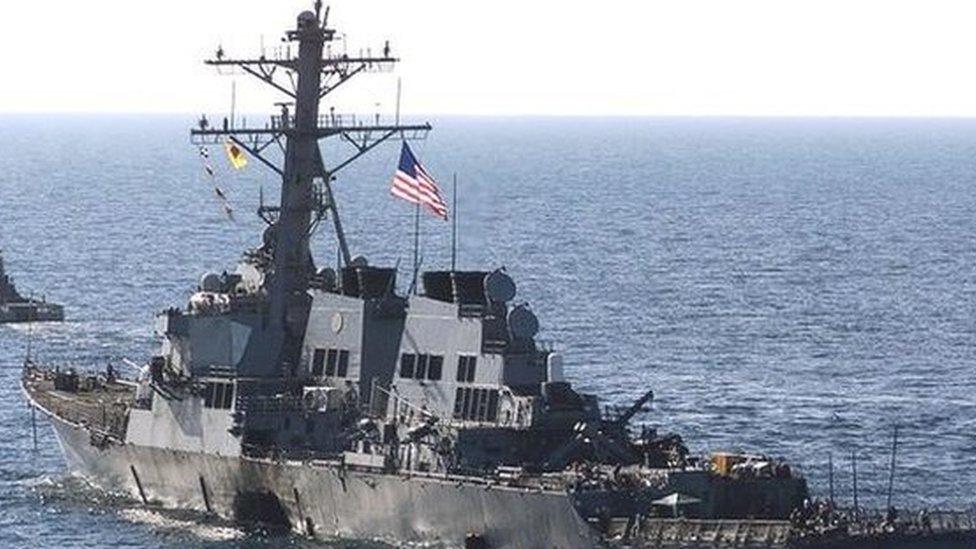
Seventeen sailors died following the attack on the USS Cole
Kidnapping reached almost epidemic proportions. The incidents were nearly all non-violent until a group kidnapped 16 western tourists in December 1998 and the resultant gun battle left four of them dead.
In October 2000, the American destroyer USS Cole was bombed by members of Islamic Jihad, linked to al-Qaeda, in the port of Aden, resulting in the deaths of 17 American sailors.
Internal dissatisfaction with the government grew when Saleh allowed the US authorities to hunt down the militants after the incident.
After the 9/11 attacks on the United States, Saleh visited Washington and in return for economic aid, allowed the CIA access to Yemen to wage its "war against terror".
Mass protests
US military experts were deployed to train Yemeni special forces and to aid counter-terrorism efforts against al-Qaeda and its affiliates.
In June 2004, a former parliamentary deputy, Hussein al-Houthi, with links to Hezbollah in Lebanon, launched an armed challenge to the president's authority.
Government forces quickly put down the rebellion but at the cost of hundreds of lives.
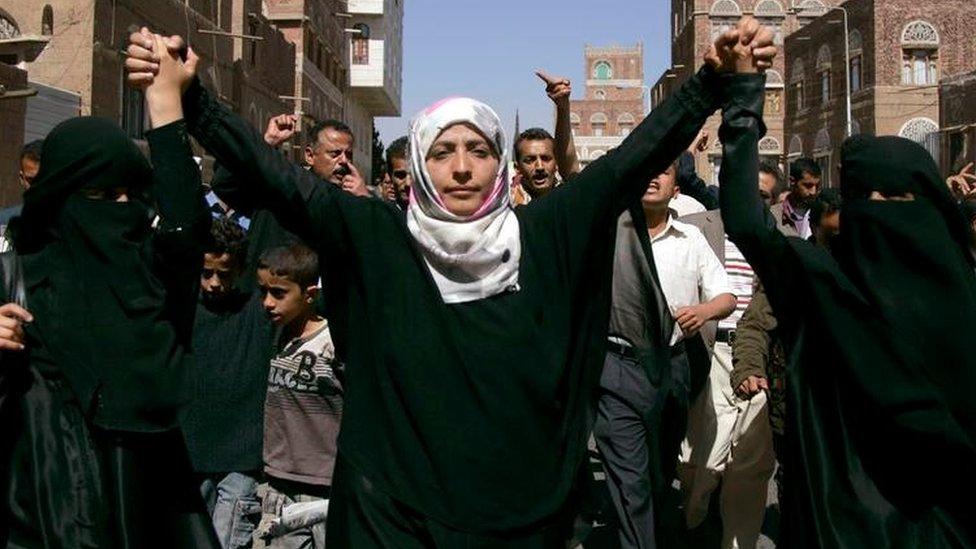
Protests followed Saleh's decision to cling to power
High levels of corruption led to an increase in poverty in the country during his rule. In July 2005, dozens were killed in riots when fuel subsidies were lifted.
Saleh was sworn in for another term of office in September 2006 after winning the presidential election with more than 77% of the vote.
But his failure to bring about much-needed economic and political reforms led to increasing opposition within Yemen.
Popular protests, influenced in part by events in Egypt and Tunisia, known as the Arab Spring, forced him to announce he would not stand again for election in 2013.
Saleh's stepping down
When he reneged on a promise in May 2011 that he would resign within a month, there were renewed protests. A month later he was badly injured when a rocket-propelled grenade struck his presidential compound.
After medical treatment in the United States, Saleh returned to Yemen in February 2012 triggering more protests. On 27 February he formally ceded power to his deputy, Abdrabbuh Mansour Hadi, and finally stepped down.
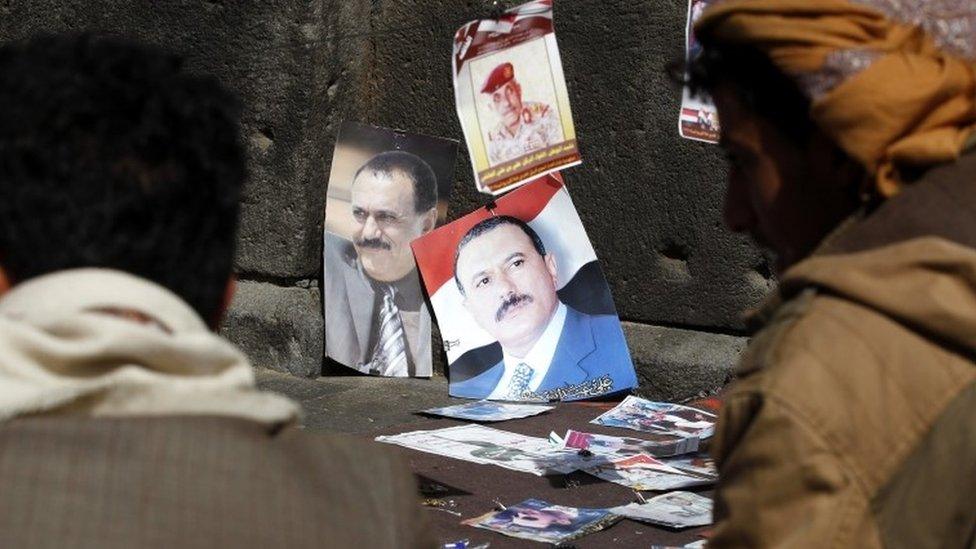
Even after stepping down, Saleh's image was prominent on Yemen's streets
From 2014 Saleh and forces loyal to him backed Houthi rebels who seized Sanaa and forced President Hadi to flee to Saudi Arabia.
The unlikely allies fought against a brutal Saudi-led military campaign which sought to restore President Hadi but devastated Yemen from 2015.
However ultimately it was Saleh's own erstwhile partners who killed him after days of clashes between the Houthis and his loyalists.